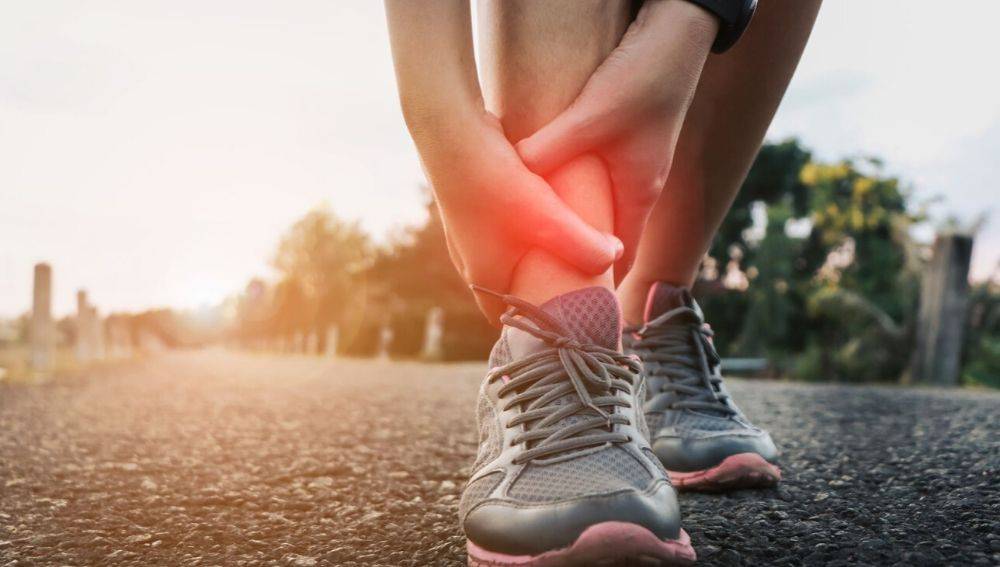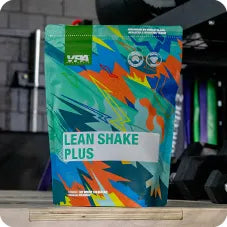Your Cart is Empty
Best Supplements for Injury Recovery (And Nutrition Tips to Heal Faster)
May 21, 2025 6 min read

Recovering from an injury can be frustrating, slow, and often demotivating, but the right approach to nutrition and supplementation can help speed healing, reduce inflammation, and support muscle repair. In this guide, we'll break down the best supplements for injury recovery, explain why they work, and offer nutrition tips to help you heal stronger and faster.
Understanding the Injury Recovery Process
A downside of finding a sport you love is the inevitable injury that sidelines you. It could be a stress fracture, slipped disc, or tendonitis. How do you use your nutrition to support your recovery? For that, let us first understand the process of healing.
What happens when your body is healing?
When you're injured, whether it's a muscle strain, tendon tear, or bone fracture, your body goes through a multi-stage healing process:
-
Hemostasis: This phase focuses on stopping bleeding and initiating clotting.
-
Inflammation (0–5 days): This initial phase prevents infection and clears damaged cells.
-
Proliferation (4–21 days): Your body starts rebuilding tissue and forming new blood vessels.
-
Remodelling (21 days–12 months): The new tissue strengthens, and the function gradually returns.
Why nutrition and supplements matter at every stage
Each phase demands different nutrients. During inflammation, the focus is on managing pain and swelling. You need nutrients that promote tissue repair and restore function in the later stages. Getting enough of the right injury recovery supplements can make a significant difference.
Macronutrients for Injury Recovery
Protein – Essential for muscle and tissue repair
Protein provides the building blocks (amino acids) for repairing muscles, ligaments, and tendons. When you're injured, your body enters a catabolic state, breaking down tissue faster. Getting adequate protein can prevent muscle loss and promote regrowth.
-
Aim for 1.6–2.2 g of protein per kg of body weight daily.
-
Sources: Eggs, chicken, tofu, yoghurt, cottage cheese, and supplements like whey protein isolate and micellar casein protein powder.
Carbohydrates – Support energy and prevent muscle breakdown
Carbs are your body's primary energy source. Energy needs often remain high during recovery, especially if you're still doing light rehabilitation exercises.
-
Carbs help spare protein for healing instead of being used for energy.
-
Sources: Whole grains, fruits, starchy vegetables, legumes.
Fats – Especially omega-3s for reducing inflammation
Fats, particularly omega-3 fatty acids, help reduce excessive inflammation that may delay healing.
-
Choose healthy fats: salmon, chia seeds, flaxseeds, avocados, nuts.
-
Avoid excessive omega-6 fats from processed foods, which can worsen inflammation.
Key Micronutrients for Healing
Vitamin C – For collagen production, supporting tendons, joints, and muscles
Vitamin C is crucial in synthesising collagen, a protein needed to rebuild connective tissue.
-
Sources: Citrus fruits, strawberries, kiwi, broccoli, red peppers.
-
Alternatively, you can take collagen supplements for muscle sprain and additional support.
Vitamin D – Supports both muscle and joint health
Vitamin D enhances calcium absorption and is essential for bone healing. It also supports immune function, helping your body fight infection during recovery.
-
Sources: Sunlight, egg yolks, fortified foods, supplements.
Zinc – Tissue repair and immune function
Zinc is involved in DNA synthesis, cell division, and immune support – all vital for tissue regeneration.
-
Sources: Shellfish, red meat, poultry, pumpkin seeds, cashews, almonds, legumes.
Magnesium – Helps with muscle relaxation, pain, and stiffness
Magnesium supports muscle relaxation, regulates nerve signals, and aids in sleep – all important during recovery.
-
Sources: Dark leafy greens, almonds, cashews, Brazil nuts, seeds, whole grains, bananas, dried apricots, brown rice, millet, magnesium supplements.
Best Supplements for Injury Recovery
Not everyone can get all the nutrients they need through food alone. The following injury recovery supplements, however, can support healing and bridge nutritional gaps:
Creatine
Creatine monohydrate is one of the most studied supplements. It helps preserve muscle mass and strength when one is not training, and is the body’s energy fuel, boosting ATP production.
-
Benefits: Reduces muscle loss, supports energy production, and may speed up recovery.
-
Use: 3–5 g daily.
Protein Powder (e.g. VPA WPI, Casein)
High-quality protein powders, such as Whey Protein Isolate (WPI) and Casein, provide essential amino acids (EAAS) quickly and conveniently.
-
WPI: Fast-absorbing, ideal post-rehab session.
-
Casein: Slow-digesting, perfect before bed.
Collagen + Vitamin C
Taking hydrolysed collagen, the primary building block of the body’s skin, muscles, bones, tendons, and connective tissue, with Vitamin C can boost collagen synthesis for joint, tendon, and ligament healing.
-
Dose: 10–15 g collagen + 75–90 mg Vitamin C, 30–60 minutes before movement or rehab.
EAAs / BCAAs
Essential Amino Acids (EAAs) and Branched-Chain Amino Acids (BCAAsupplements) help reduce muscle breakdown and promote repair.
-
BCAAs: Include leucine, isoleucine, valine.
-
EAAs: Contain all nine essential amino acids (including EAAs).
-
Use: Especially helpful if the appetite is low.
Omega-3 Fatty Acids
Supplementing with fish oil provides EPA and DHA, which help control inflammation and may speed up the healing of soft tissue injuries. This reduces muscle soreness and stiffness post-injury.
-
Dose: 1–3 g EPA + DHA daily. Not more than 2 g coming from supplements.
Glutamine
Glutamine supports immune health and gut integrity, which may be compromised during physical stress or injury.
-
It may also help reduce muscle wasting.
-
Use: 5–10 g daily.
Electrolytes
If you sweat during rehab or live in a hot climate, electrolytes help maintain hydration and muscle function and reduce muscle fatigue during recovery.
-
Include: Sodium, Potassium, Magnesium.
Multivitamin or targeted micronutrients
If your diet is lacking or your appetite is poor, a quality multivitamin ensures you're not missing critical healing nutrients like Vitamin A, B, and iron.
What to Eat During Injury Recovery
High-protein foods – Eggs, lean meats, tofu, dairy
Make protein the centrepiece of every meal. It helps rebuild muscle, connective tissue, and enzymes involved in repair.
Omega-3 rich foods – Salmon, flaxseeds, walnuts
These foods help naturally lower inflammation and support cardiovascular health during reduced activity. They reduce muscle soreness and stiffness post-injury.
Antioxidant-rich foods – Berries, leafy greens, turmeric
Antioxidants protect cells from damage and may aid healing by reducing oxidative stress.
Hydration – Water, electrolytes, collagen-rich broths
Hydration is often overlooked but vital for nutrient transport and waste removal.
-
Try bone broth for added collagen and electrolytes.
Should you increase calories while recovering?
Yes, depending on your injury severity and activity level. Healing is an energy-intensive process.
-
Don’t restrict calories unless advised by a health professional.
-
Focus on nutrient-dense whole foods.
-
Increase calorie intake to support the body’s healing and maintain muscle mass.
Tips for Using Supplements Safely During Recovery
-
Check for interactions with medications or treatments.
-
Stick to recommended doses; optimal, and not more, is better.
-
Choose reputable brands that undergo third-party testing.
-
Consult a healthcare provider before starting new supplements, especially if you have health conditions.
Conclusion
Healing from injury takes time, but combining the right injury recovery supplements with good nutrition, rest, and rehab can significantly improve your outcome. From protein and collagen to creatine and omega-3s, each supplement has a unique role in rebuilding and regenerating your body. Prioritise whole foods, hydrate well, and use injury nutrition supplements as tools to support the process, not shortcuts.
FAQs
What is the best supplement for injury recovery?
There isn't one "best" supplement, but whey protein powder, collagen with vitamin C, and omega-3 fatty acids are among the most effective.
What supplement helps repair muscle tissue?
Protein (especially WPI or casein), creatine, and EAAs are powerful muscle repair supplements after injury.
Which supplements help with muscle soreness and stiffness after injury?
Magnesium, omega-3s, and glutamine can ease soreness and support relaxation.
What are the best vitamins for muscle pain and joint recovery?
Vitamin D, Vitamin C, and magnesium are key for reducing pain and improving function.
What vitamins help muscles and bones heal?
Vitamin D, C, zinc, and calcium work together to support bone and muscle regeneration.
Is collagen good for healing joints or tendons?
Yes, collagen supports tendon and ligament repair, especially when taken with Vitamin C.
Are EAAs better than BCAAs for recovery?
When comparing EAA vs BCAA, EAA offers a more complete amino acid profile and may be more effective during recovery.
Does creatine help with injury recovery?
Yes, creatine injury recovery research shows it helps preserve muscle mass and may speed up the return to training.
Should I take protein even if I'm not training?
Yes. You still need protein to repair tissue, prevent muscle loss, and support your immune system.
How much protein should I eat during recovery?
Aim for 1.6–2.2 g/kg of body weight daily, spaced throughout the day.
What helps pulled muscles heal faster?
Rest, ice/heat therapy, gentle rehab, adequate protein, and supplements like magnesium and creatine help pulled muscles heal faster.
Are supplements necessary if I eat well?
Not always, but they are a significant part of nutrition for injury recovery when needs are higher or appetite is reduced.
References:
-
National Institutes of Health, Office of Dietary Supplements. (2022, September 28). Zinc: Fact sheet for health professionals. Retrieved from https://ods.od.nih.gov/factsheets/Zinc-HealthProfessional/
-
Physiopedia. (n.d.). Wound healing. Retrieved from https://www.physio-pedia.com/Wound_Healing
-
Golisano Children’s Hospital. (n.d.). Magnesium-rich foods. Retrieved from https://www.urmc.rochester.edu/childrens-hospital/nutrition/magnesium-foods
-
Krupa, K. N., Fritz, K., & Parmar, M. (n.d.). Omega-3 Fatty Acids. In StatPearls. Retrieved from https://www.ncbi.nlm.nih.gov/books/NBK564314/#:~:text=EPA%20and%20DHA%20are%20considered,neoplasm%20growth%20in%20murine%20models.&text=Methyl%20mercury%2C%20a%20toxic%20organometallic,do%20not%20contain%20methyl%20mercury
-
VPA Australia. (n.d.). Official website. Retrieved from https://www.vpa.com.au

Rachel Eagleton
Rachel Eagleton (MHumNut) is a university qualified Clinical Nutritionist based in Sydney, Australia. She is a busy working mum of two teenagers, so is practical and realistic with her advice. Rachel offers private consultations to improve your sporting performance, or your general health and well-being.
Also in Diet and Nutrition
Recent Articles
- Best Supplements for Injury Recovery (And Nutrition Tips to Heal Faster)
- Does Whey Protein Have Lactose? What You Need to Know
- Protein Shake for Breakfast: Is It a Healthy Choice?
- How to Bulk: A Complete Guide for Beginners
- 10 Quick Pre-workout Bites to Power Your Training
- Banish the Belly Bloat: Simple Solutions for a Flatter Feeling
- Navigating the Golden Years: Enhancing Mobility as You Age
- A Comprehensive Dive into the World of Biohacking
- Why you should try the Mediterranean Diet
- Managing Blood Sugar Spikes: A Comprehensive Guide for Better Health
${{amount}}















